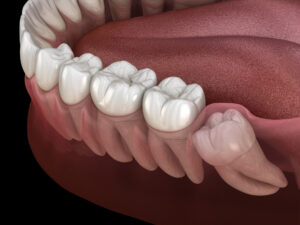Gas formation and release is a sign of a healthy digestive system. However, less than optimum or excess of gas formation and release could be a sign of some underlying medical conditions. Normally, burps are regular release of swallowed air trapped in the esophagus, but when air reaches inner digestive tracts and mixes with digestive juices it smells like rotten egg when released. These digestive gases are hydrogen sulfide gas, when released are called sulfur burps.
In most cases sulfur burps are normal, and don’t require medical intervention, but if burping is excessive then you might need medical attention as it could be a sign of underlying digestive condition caused by physiological or psychological malfunction. If you are experiencing any irregularity in gas formation or release aided by foul rotten egg smell, you should get in touch with your physician to know the exact reason and start treatment as recommended by your doctor.
What Are Sulfur Burps?
Bacterial breakdown of food particles and chemical reaction of digestive juices forms gas in intestinal tracts. A healthy body gets rid of excess gas by burping on average 14 to 23 times a day. Normally burps don’t smell as your body releases odorless gases like oxygen and carbon dioxide. But, if gases trapped in digestive tracts get mixed with sulfurous gas, your burps will start smelling fetid.
The cause of excessive gas formation and release can vary from person to person depending on food habits, lifestyle, mental health status, or underlying medical condition. Some very common causes of more than average gas swallowing and burping could be drinking and eating too fast, smoking and chewing gums, sucking, and drinking carbonated beverages. In some cases sulfur burps could be due to loose dentures, so thorough examination might be needed to find the possible cause and treat accordingly.
What Causes Sulfur Burps?
Understanding the cause of gas formation will help you understand burps in general and sulfur burps in particular. Besides swallowing air while eating or drinking, the reason for gas formation could be gut condition, or some kind of infection. Whatever the reason, if your burps smell like “rotten egg” you should consult your doctor for thorough diagnosis. In most cases hydrogen sulfide gas formation and release could be due to factors like:
Eating Sulfur-rich Foods
Sulfurous gas forms in the digestive tract when bacteria in your large intestine start breaking down certain undigested sulfur-rich foods like whole grains, brussels sprouts, broccoli, and milk products. If you are experiencing excessive sulfurous burping, you should better avoid sulfur-rich foods for a few days and notice changes. If the condition persists or worsens, it could be due to other underlying conditions.
Bacterial Infection
The presence of infection causing bacteria called Helicobacter pylori (H. pylori) is very common across all age groups, races, and genders. In most cases it is not harmful, but in some cases it can be the cause of sulfur burps with other symptoms such as nausea, bloating, and stomach pain.
Gastroesophageal Reflux Disease (GERD)
Partially digested food with stomach acid could rise into the esophagus causing discomfort and bad-smelling burps release. Symptoms of GERD include heartburn, chest pain, and acid reflux. With some medication and lifestyle changes, it could be controlled but if it persists your doctor might recommend some tests to identify the possible cause.
Inflammatory Bowel Disease
Inflammatory bowel disease (IBD) is an umbrella term used for digestive system inflammation leading to symptoms like abdominal pain, bloody diarrhea, excessive bowel movement, fever, and appetite loss. Latest research indicates that IBD is the result of the immune system attacking harmless pathogens. In case of ulcerative colitis the inflammation remains restricted to the colon or large intestine, whereas in case of Crohn’s disease inflammation could be in any part of the gastrointestinal tract. Most common of all the symptoms is the excessive sulfur burps, which could be easily controlled with some medications. You might need medical intervention if the IBD is due to other underlying conditions.
Food Intolerances
Your body is not conditioned to accept all types of foods, so intolerance to certain foods could lead to digestive irregularities including sulfurous burps. Lactose, found in milk products, and gluten, found in wheat, oats, and barley, are most common digestive irritants.
Irritable Bowel Syndrome
Although rare, Irritable bowel syndrome (IBS) is one of the serious chronic digestive conditions. It affects the large intestine leading to abdominal cramp, diarrhea, constipation, and sulfur burps.
Giardia
It is an intestinal infection caused by a parasite, which enters the digestive system via contaminated water. Presence of this parasite could cause diarrhea, loss of appetite, along with sulfurous burps. It is a temporary infection and goes away in a few days with proper medication and care.
Ways to Treat Sulfur Burps
Once you know the cause of sulfur burps, you can start medication as prescribed by your doctor. But before you visit your doctor you can try home remedies to control the sulfurous gas formation and release and lead a healthy life.
- Turmeric: It is highly effective natural herbal medicine, easily available in kitchens used as a natural coloring agent, known for antibacterial and antioxidant properties. If you are experiencing excessive gas formation with foul-egg type smell you can try turmeric to control gas formation and soothe heartburn. Some studies suggest turmeric extracts are effective in controlling symptoms of irritable bowel syndrome.
- Green Tea: Green tea with its high antioxidants is very effective in treating upset stomachs. You can make it effective against foul smell by adding mint to green tea. Alternatively, you can try chamomile tea to deal with excessive burps.
- Fennel: Fennel is a rich source of antioxidants and the vitamin C, A, D. Chewing fennel seeds after meals could strengthen your digestive system. It contains minerals like copper, iron, zinc, and magnesium boosts your immune response, making your system stronger to deal with digestive tract infection.
- Cumin: If sulfurous burps are due to irritable bowel syndrome you can try cumin seeds. In a few minutes it will help you control gas and bloating. It is known for its antibiotic properties, so helps in dealing with symptoms of H pylori.
- Anise: It is known for its antimicrobial properties, so taking it with tea helps in fighting gas and other digestive tract infections.
- Caraway: This ancient Greek medicinal seed is known for its effectiveness in treating several bacterial infections, including heartburn, sulfurous burps, in indigestion. It is best to brew caraway seeds in boiling water and consume it as tea to soothe the bowel.
- Ginger: Tea with ginger helps in relieving symptoms of digestive tract infection including sulfurous burps. It helps control bacterial growth in oral space and makes your breath fresh. However, you should avoid ginger ale as it could increase the gas formation.
- Medications: Sometimes home remedies might not help in controlling the symptoms of digestive system ailments, including sulfur burps. Thankfully, there are several anti-gas medications available over-the-counter to offer you immediate relief. Bismuth subsalicylate (Pepto-Bismol) is very helpful in controlling the sulfurous smell of your burps. Food indigestion is one of the most common causes of excessive burping, if this is the case you can try digestive enzyme based medications. If your digestive system is lactose intolerant, you can try enzyme lactase to control gas formation. Consuming probiotics could help you increase good bacteria count and strengthen the digestive system. A healthy digestive tract will not allow excessive gas formation and release of sulfurous burps.
How to Prevent Excessive Burps?
One of the safest ways to control burp in general and sulfurous burps formation and release in particular is to control the consumption of sulfur-rich foods from your diet. Some of the vegetables and fruits rich in sulfur are:
- Kale
- Broccoli
- Cauliflower and Cabbage
- Mustard Green
- Brussels Sprouts
- Radish and Turnip
- Arugula
- Bok Choy
If you want to control sulfurous burps you should better cut consumption of beer, protein-rich diet like eggs, meats, poultry, and fish at least during the treatment. If you find any of the food hard to digest, it is better to avoid it to keep your digestive system healthy.
Besides controlling sulfur rich-food, you should control activities that increase air swallowing. Doctors recommend avoiding carbonated drinks, chewing gum, sucking hard candies, swallowing air before burping, avoid eating & drinking too quickly, and check denture fitting.
Key Takeaway
Gas formation and release is natural and necessary. So, it is good for a healthy digestive system, but what if it is excessive and foul. You need to be a little cautious as this could be a primary sign of some underlying condition. Although, in the majority of cases sulfurous burps could be treated with home remedies and OTC medications, you should consult your doctor if the conditions persist for long or return frequently. Your doctor will examine symptoms and suggest some tests to know about the possible cause. Based on diagnosis, he will prescribe some medications to control and treat sulfur burps. If you are wearing dentures and notice a sudden jump in sulfur burp formation, you should get in touch with your dentist to fix your denture as loose denture could be one of the possible reasons for sulfur burps.
Sources:
- Kung Jr, L. (2008). “Burping can be dangerous if you are a ruminant: issues with high sulfur diets”.
http://cdn.canr.udel.edu/wp-content/uploads/2014/02/08BurpingCanbeDangerousifyouareaRuminant.pdf - Fiorucci, S., Distrutti, E., Cirino, G., & Wallace, J. L. (2006). “The emerging roles of hydrogen sulfide in the gastrointestinal tract and liver”.
https://www.sciencedirect.com/science/article/pii/S0016508506003891 - Mard, S. A., Askari, H., Neisi, N., & Veisi, A. (2014). “Antisecretory effect of hydrogen sulfide on gastric acid secretion and the involvement of nitric oxide”.
https://www.hindawi.com/journals/bmri/2014/480921/ - Zad, M., & Bredenoord, A. J. (2020). “Chronic Burping and Belching”.
https://link.springer.com/content/pdf/10.1007/s11938-020-00276-0.pdf


